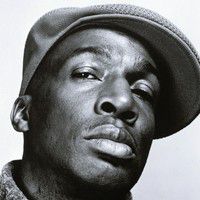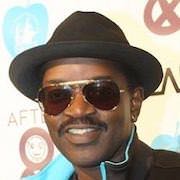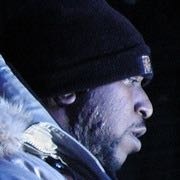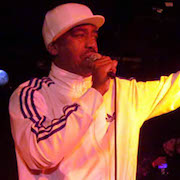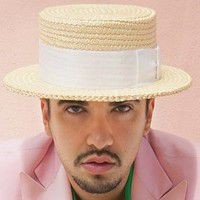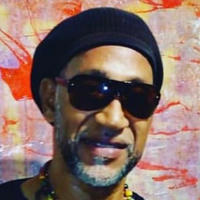Clive Campbell (born April 16, 1955), better known by his stage name DJ Kool Herc, is a Jamaican DJ who is credited for originating hip hop music in the Bronx, New York City, in the 1970s through his "Back to School Jam", hosted on August 11, 1973, at 1520 Sedgwick Avenue. After his younger sister, Cindy Campbell, became inspired to earn extra cash for back-to-school clothes, she decided to have her older brother, then 18 years old, play music for the neighborhood in their apartment building. Known as the "Founder of Hip-Hop" and "Father of Hip-Hop", Campbell began playing hard funk records of the sort typified by James Brown.
Campbell began to isolate the instrumental portion of the record which emphasized the drum beat—the "break"—and switch from one break to another. Using the same two-turntable set-up of disco DJs, he used two copies of the same record to elongate the break. This breakbeat DJing, using funky drum solos, formed the basis of hip hop music. Campbell's announcements and exhortations to dancers helped lead to the syncopated, rhythmically spoken accompaniment now known as rapping.
He called the dancers "break-boys" and "break-girls", or simply b-boys and b-girls. Campbell's DJ style was quickly taken up by figures such as Afrika Bambaataa and Grandmaster Flash. Unlike them, he never made the move into commercially recorded hip hop in its earliest years.

